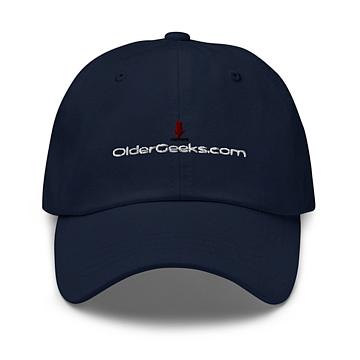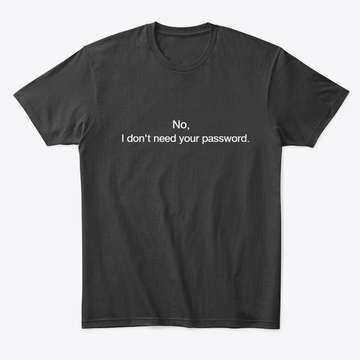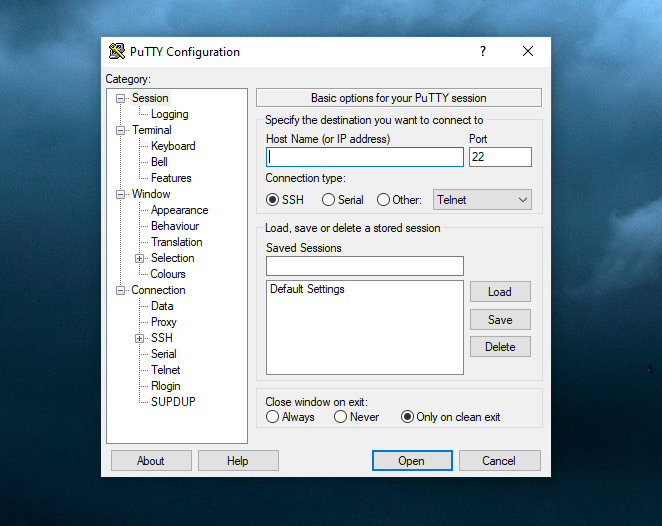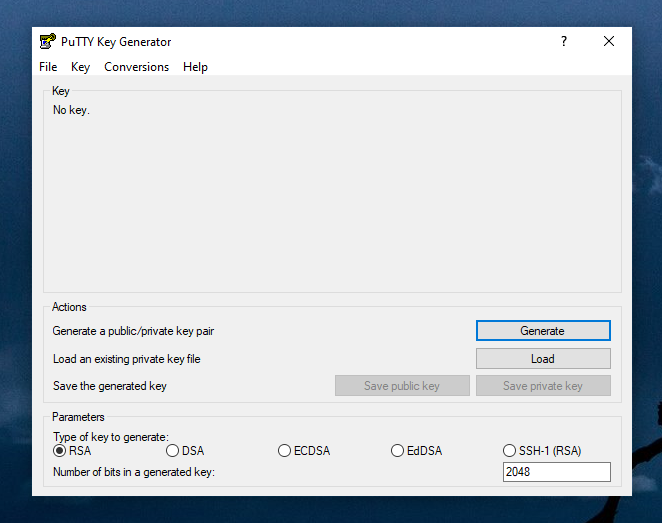Buy our over-priced crap to help keep things running.




















| File - Download PuTTY v0.83 | ||||||||
| Description | ||||||||
|
A plea... Deanna and I have been running this site since 2008 and lately we're seeing a big increase in users (and cost) but a decline in percentage of users who donate. Our ad-free and junkware-free download site only works if everyone chips in to offset the revenue that ads on other sites bring in. Please donate at the bottom of the page. Every little bit helps. Thank you so much. Sincerely, your Older Geeks: Randy and Deanna Always scroll to the bottom of the page for the main download link. We don't believe in fake/misleading download buttons and tricks. The link is always in the same place. PuTTY v0.83 A free SSH, Telnet, Rlogin, and SUPDUP client for Windows systems. SSH, Telnet, Rlogin, and SUPDUP are four ways of doing the same thing: logging in to a multi-user computer from another computer, over a network.  Using this type of interface, there is no need for you to be sitting at the same machine you are typing commands to. The commands, and responses, can be sent over a network, so you can sit at one computer and give commands to another one, or even to more than one. SSH, Telnet, Rlogin, and SUPDUP are network protocols that allow you to do this. On the computer you sit at, you run a client, which makes a network connection to the other computer (the server). The network connection carries your keystrokes and commands from the client to the server, and carries the server's responses back to you. These protocols can also be used for other types of keyboard-based interactive session. In particular, there are a lot of bulletin boards, talker systems and MUDs (Multi-User Dungeons) which support access using Telnet. There are even a few that support SSH. You might want to use SSH, Telnet, Rlogin, or SUPDUP if: • you have an account on a Unix system (or some other multi-user OS such as VMS or ITS) which you want to be able to access from somewhere else • your Internet Service Provider provides you with a login account on a web server. (This might also be known as a shell account. A shell is the program that runs on the server and interprets your commands for you.) • you want to use a bulletin board system, talker or MUD which can be accessed using Telnet. You probably do not want to use SSH, Telnet, Rlogin, or SUPDUP if: • you only use Windows. Windows computers have their own ways of networking between themselves, and unless you are doing something fairly unusual, you will not need to use any of these remote login protocols. How do SSH, Telnet, Rlogin, and SUPDUP differ? This list summarizes some of the differences between SSH, Telnet, Rlogin, and SUPDUP. • SSH (which stands for ‘secure shell’) is a recently designed, high-security protocol. It uses strong cryptography to protect your connection against eavesdropping, hijacking and other attacks. Telnet, Rlogin, and SUPDUP are all older protocols offering minimal security. • SSH and Rlogin both allow you to log in to the server without having to type a password. (Rlogin's method of doing this is insecure, and can allow an attacker to access your account on the server. SSH's method is much more secure, and typically breaking the security requires the attacker to have gained access to your actual client machine.) • SSH allows you to connect to the server and automatically send a command, so that the server will run that command and then disconnect. So you can use it in automated processing. The Internet is a hostile environment and security is everybody's responsibility. If you are connecting across the open Internet, then we recommend you use SSH. If the server you want to connect to doesn't support SSH, it might be worth trying to persuade the administrator to install it. If your client and server are both behind the same (good) firewall, it is more likely to be safe to use Telnet, Rlogin, or SUPDUP, but we still recommend you use SSH. Changes v0.83 2025-02-08 Support for ML-KEM, the NIST-standardised post-quantum key exchange mechanism. (In addition to NTRU Prime, which has been supported since 0.78.) Support for full Unicode file names in Windows file selector dialogs. (However, these do not yet round-trip through a saved session.) Bug fix: psftp -b works again. Bug fix: assertion failure if an SSH connection times out at the login prompt. Bug fix: crash in Pageant if an SSH connection is abandoned while waiting for a deferred decryption passphrase. Bug fix: tight loop if PuTTY tried to send an empty answerback string. Bug fix: accidental truncation of some configuration edit boxes' contents to 127 characters. Bug fix: Windows XP support was accidentally broken, and now reinstated. Bug fix: restored interoperation with third-party tools that auto-fill login prompts by sending ^M for Return. Bug fix: confusion when terminal window resized by tools like FancyZones. Bug fix: the small keypad keys didn't reliably work in the terminal on Unix.  This download is for the Windows 64bit version (very bottom of page). If you need the Windows 32bit version, download here. If you need the Windows ARM 64bit version, download here. Click here to visit the author's website. Continue below for the main download link. |
||||||||
| Downloads | Views | Developer | Last Update | Version | Size | Type | Rank | |
| 676 | 3,518 | Simon Tatham <img src="https://www.oldergeeks.com/downloads/gallery/thumbs/PuTTY1_th.png"border="0"> | May 23, 2025 - 01:20 | 0.83 | 3.65MB | MSI |  , out of 24 Votes. , out of 24 Votes. |
|
| File Tags | ||||||||
| PuTTY v0.83 | ||||||||
Click to Rate File Share it on Twitter → Tweet
|